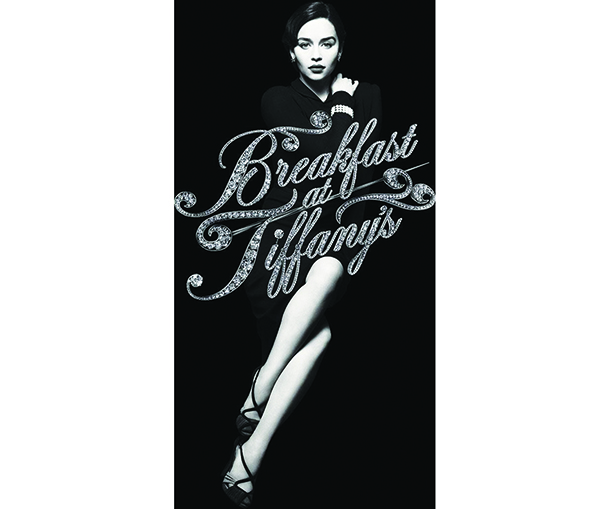
Following in the footsteps of Audrey Hepburn is not an easy task, but “Game of Thrones” star Emilia Clarke treads especially heavily as Holly Golightly, New York’s most famous good-time girl, in the new stage adaptation of Truman Capote’s novella, “Breakfast at Tiffany’s.”
The new iteration, directed by Sean Mathias, remains much truer to the Capote’s original story than the 1961 film. This film-noir inspired production, complete with Venetian blinds, is charged with saxophones and sex appeal.
The action opens on a rainy night with a man in a fedora to complete the aesthetic. Mathias chooses to lead us down a new, dark path — a path we would follow willingly, if only his collaborators didn’t constantly undermine him at every turn. Richard Greenburg’s stage adaptation pulls many lines directly from the film, creating a jarring disconnect that removes the audience from the sultry, new world Mathias works so hard to create.
Clarke’s over-the-top performance as Holly is immature and feels like a misunderstanding of theater acting. It is a sloppy and extreme transition from the more conservative work that happens in front of a camera.
However, while Golightly possesses an essential “je ne sais quoi,” which Hepburn epitomized, Clark’s performance fails to showcase the same charm. While Hepburn’s Golightly was wholly enamoring in a “men want her and women want to be her” sort of way, only the former is true of Clarke’s, and even that may be due more to her skimpy costuming than anything else. The full-bodied actress proves, in all other respects, painfully thin.
The blame for a hollowed-out Holly, however, does not fall completely on Clarke. Most of the story is told in direct address to the audience. The aforementioned fedora-donning man is our narrator and Holly’s nameless neighbor. She christens him Fred, at first, after her enlisted brother. Later we know him simply — and appropriately — as Darling.
Cory Michael Smith plays Fred with a youthful and endearing naivete. But the narration Greenburg gives him replaces real-time character development, diminishing Holly Golightly from a complicated human to a two-dimensional legend.
If it weren’t for the tender testimonials of Fred and Joe, a local bartender played delightfully by George Wendt, we would never know what all the fuss about Holly was about. Those passages, however, are revealingly genuine. In one particularly lovely moment, Fred likens loving Holly to living in a year that is made up of only October over and over. In that brief moment, we certainly understand the fuss.
“Breakfast at Tiffany’s” is playing now through Sept. 1 at the Cort Theater.
Olivia George is theater and books editor. Email her at [email protected].





















































































































































